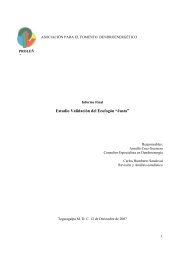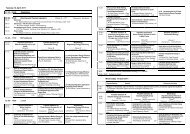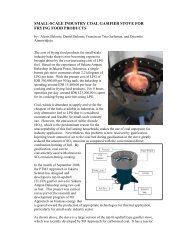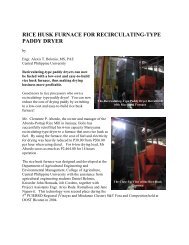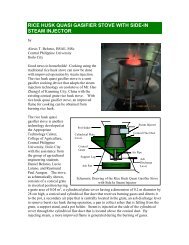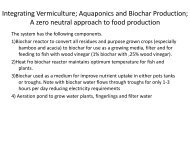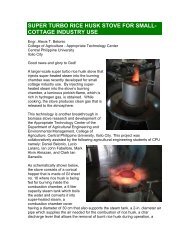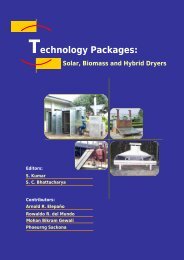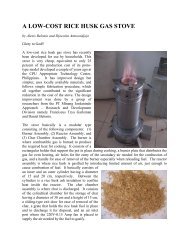U.S.-FocUSed Biochar report - BioEnergy Lists
U.S.-FocUSed Biochar report - BioEnergy Lists
U.S.-FocUSed Biochar report - BioEnergy Lists
Create successful ePaper yourself
Turn your PDF publications into a flip-book with our unique Google optimized e-Paper software.
Principles and Baseline Practices for Sustainability. 21The Principles cover environmental, social and economic issues and set the stage for their Sustainability Guidelines.22Their Sustainable Feedstock Baseline Practices, with the exception of Item 6 --Waste Oils, below, all of the BaselinePractices apply to biomass sustainability, the word biodiesel can be interchangeable with biomass energy. Anew addition to the concepts outlined in the other examples is the Localization Principle (Item 8). This is gainingincreasing popularity as people come to understand that local production can enhance community well-being,increase local economic strength, complement community resilience and well-being, and reduce the overall carbonfootprint of activities.Sustainable Feedstock Baseline Practices1. Soil Quality and Conservation – contributes to long-term maintenance and enhancement of soil quality2. Water Resources Quality and Consumption – protect water quality and conserve water resources.3. Ecosystem Protection – Biodiversity - does not lead to the destruction, degradation or declassification ofhigh conservation value areas; areas of high biodiversity; habitats of rare, threatened or endangered species;or rare, threatened or endangered ecosystems. Protected areas, including forested areas, will not be declassifiedor appropriated for sustainable [biodiesel] crop production. At the landscape level, sustainable [biodiesel]production systems contribute to the conservation and maintenance of native biological diversity.4. Climate – Emissions & Sequestration Potential - does not Increase GHG emissions and should increase thesequestration potential of current land use when possible.5. Energy Use – improves energy and resource conservation. Wasteful use of fossil fuels should not be replacedwith wasteful use of [biodiesel]. Instead, significant reductions in total consumption, together with increasedconservation, shall be a priority. The production of sustainable [biodiesel] should utilize alternative and renewableenergy to improve energy and resource conservation.6. Recycled Fats and Oils7. Fair Wages & Working Conditions – Farmer, Farm Worker - Fair wages, non-discriminatory and safe workingconditions are provided for workers in sustainable biodiesel feedstock production.8. Community Benefit – Localization - Local communities are an integral part of the development of the sustainable[biodiesel] industry. Local strategies for [biodiesel] production with citizen input are created. Localcommunity benefit is prioritized, because the power of local businesses can transform communities for thebetter by working cooperatively toward a shared vision.9. Next Generation Feedstock – Research and development of sustainable, emerging fuels and technologiesis critical for biodiesel industry growth. These technologies shall be developed with the consideration of theaforementioned principles.Sustainable Production (items 1-9 above) is further evaluated on another sub-set of criteria, some of which alsocover Distribution Practices*:• Air Emissions *• Water• Waste Handling & Reduction• Plant Energy• Plant/Worker Safety• Sustainable Purchasing21 Sustainable Biodiesel Alliance. “Principles and Baseline Practices for Sustainability” http://sustainablebiodieselalliance.com/dev/BPS%20V.1.pdf22 Ibid.<strong>Biochar</strong> sustainability in: <strong>Biochar</strong> and Sustainable Practices49



